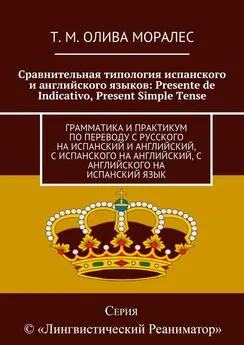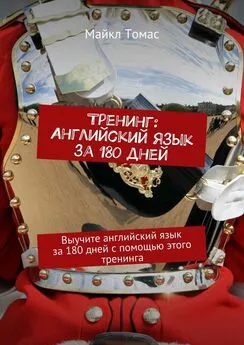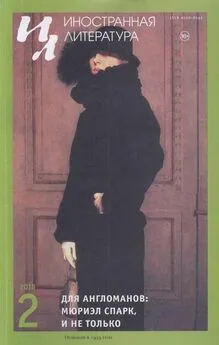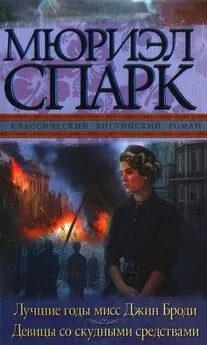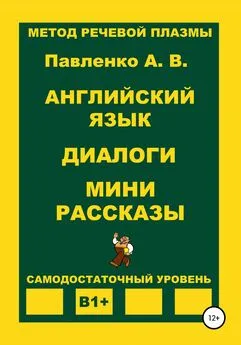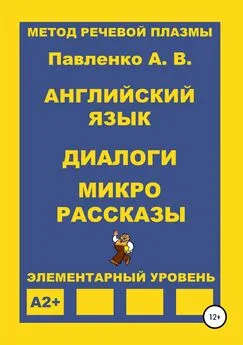Мюриэль Спарк - Английский язык с Мюриэль Спарк (рассказы)
- Название:Английский язык с Мюриэль Спарк (рассказы)
- Автор:
- Жанр:
- Издательство:неизвестно
- Год:неизвестен
- ISBN:нет данных
- Рейтинг:
- Избранное:Добавить в избранное
-
Отзывы:
-
Ваша оценка:
Мюриэль Спарк - Английский язык с Мюриэль Спарк (рассказы) краткое содержание
Английский язык с Мюриэль Спарк (рассказы) - читать онлайн бесплатно полную версию (весь текст целиком)
Интервал:
Закладка:
artificial ["Q: tI'fIS(q)l] conclude [kqn'klu: d] disapproval ["dIsq'pru: v(q)l]
The drawn blind and the artificial light irritated me, and suddenly I didn't see why I shouldn't write my letters by daylight without being stared at. I switched off the light and released the blind. Herr Stroh had gone. I concluded that he had taken my actions as a signal of disapproval, and I settled back to write.
I looked up a few moments later (я подняла взгляд через несколько мгновений), and this time Herr Stroh was seated on a chair (в этот раз господин Строх сидел в кресле; chair — стул, кресло ) a little way back from the window (чуть вдалеке от окна). He was facing me squarely (он открыто рассматривал: «смотрел в лицо» меня) and holding to his eyes (и держал у глаз; to hold — держать, удерживать ) a pair of field-glasses (полевой бинокль; pair — пара, парныйпредмет, вещь, состоящаяиздвухчастей ).
I left my room (я покинула свою комнату) and went down to complain to Frau Lublonitsch (и пошла вниз пожаловаться фрау Люблонич; to complain — жаловаться, выражатьнедовольство ).
"She's gone to the market (она ушла на рынок; market — рынок, базар, торговля )," Gertha said. "She'll be back in half an hour (она вернется через полчаса).''
So I lodged my complain with Gertha (и так я пожаловалась: «подала свою жалобу» Герте).
"I shall tell Frau Chef (я передам: «скажу» госпоже Хозяйке)," she said.
Something in her manner made me ask (что-то в ее манере заставило меня спросить; tomakesmbdosmth— заставить, вынуждать, побуждать кого-то сделать что-то ). "Has this ever happened before (это уже и раньше случалось)?"
"Once or twice this year (один или два раза в этом году)," she said (сказала она). "I'll speak to Frau Chef (я поговорю с госпожой Хозяйкой)." And she added (и добавила), with her music-hall grimace (с опереточной гримасой /на лице/; music-hall— мюзик-холл, концертный зал ), "He was probably counting your eyelashes (возможно, он пересчитывал ваши ресницы; tocount— считать, подсчитывать, пересчитывать )."
squarely ['skwεqlI] field-glasses ['fi: ld" glQ: sIz] lodged [lOGd]
I looked up a few moments later, and this time Herr Stroh was seated on a chair a little way back from the window. He was facing me squarely and holding to his eyes a pair of field-glasses.
I left my room and went down to complain to Frau Lublonitsch.
"She's gone to the market," Gertha said. "She'll be back in half an hour.''
So I lodged my complain with Gertha.
"I shall tell Frau Chef," she said.
Something in her manner made me ask. "Has this ever happened before?"
"Once or twice this year," she said. "I'll speak to Frau Chef." And she added, with her music-hall grimace, "He was probably counting your eyelashes."
I returned to my room (я вернулась в свою комнату). Herr Stroh still sat in position (господин Строх все еще сидел в /том же/ положении), the field-glasses in his hands resting on his knees (бинокль в его руке лежал: «покоился» на /его/, коленях; knee — колено ). As soon as I came within view (как только я попала в поле зрения: «вошла»), he raised the glasses to his eyes (он поднял бинокль к глазам). I decided to stare him out (я решила переглядеть его ; to stare smb. out — смутитьпристальнымвзглядом, заставитьопуститьглаза ) until such time as Frau Lublonitsch should return (до того самого времени, когда фрау Люблонич вернется) and take the matter in hand (и возьмет ситуацию под контроль: «в руки»).
For nearly an hour (почти час) I sat patiently at the window (я терпеливо сидела у окна). Herr Stroh rested his arms now and again (господин Строх опускал /для отдыха/ руки время от времени), but he did not leave his seat (но не оставлял своего места). I could see him clearly (я отчетливо его видела: «могла видеть»), although I think I imagined the grin on his face as (хотя, мне кажется, я придумала /что вижу/ ухмылку на его лице, когда), from time to time (время от времени), he raised the glasses to his eyes (он подносил бинокль к глазам).
knee [ni: ] raised [reIzd] patiently ['peIS(q)ntlI]
I returned to my room. Herr Stroh still sat in position, the field-glasses in his hands resting on his knees. As soon as I came within view, he raised the glasses to his eyes. I decided to stare him out until such time as Frau Lublonitsch should return and take the matter in hand.
For nearly an hour I sat patiently at the window. Herr Stroh rested his arms now and again, but he did not leave his seat. I could see him clearly, although I think I imagined the grin on his face as, from time to time, he raised the glasses to his eyes.
There was no doubt that he could see (не было никакого сомнения, что он видел; doubt — сомнение, нерешительность, колебание ), as if it were within an inch of his face (как если бы оно было в расстоянии дюйма от его лица; inch — дюйм, мерадлиныв2,54 см ), the fury on mine (ярость на моем /лице/). It was too late now for one of us to give in (теперь было слишком поздно, ни один из нас не сдавался; to give in — уступать, сдаваться ), and I kept glancing down at the entrances to the Hotel Stroh (и я продолжала поглядывать вниз, на вход в отель Строх; entrance — вход, входнаядверь, въездныеворота ), expecting to see Frau Lublonitsch (ожидая увидеть фрау Люблонич) or perhaps one of her sons (или, возможно, одного из ее сыновей) or the yard hands (или одного из помощников по саду-огороду) going across to deliver a protest (направляющихся через /тропинку/, чтобы выразить неудовольствие: «доставить протест»). But no one from our side approached the Stroh premises (но никто с нашей стороны не приблизился к владениям Строха; to approach — подходить, приближаться ), from either the front or the back of the house (ни с фасада: «переда», ни с заднего двора дома). I continued to stare (я продолжала пристально смотреть), and Herr Stroh continued to goggle through his glasses (и господин Строх продолжал таращить глаза в: «через» свой бинокль).
fury ['fjV(q)rI] perhaps [pq'hxps] goggle ['gOg(q)l]
There was no doubt that he could see, as if it were within an inch of his face, the fury on mine. It was too late now for one of us to give in, and I kept glancing down at the entrances to the Hotel Stroh, expecting to see Frau Lublonitsch or perhaps one of her sons or the yard hands going across to deliver a protest. But no one from our side approached the Stroh premises, from either the front or the back of the house. I continued to stare, and Herr Stroh continued to goggle through his glasses.
Then he dropped them (затем он их уронил; todrop— капать; ронять, бросать ). It was as if they had been jerked out of his hands (как будто бы они были выбиты из его рук ; to jerk out — выдергивать, говоритьотрывисто ) by an invisible nudge (невидимым толчком). He approached close to the window and gazed (он подошел близко к окну и пристально посмотрел), but now he was gazing (но теперь он уставился) at a point above and slightly to the left of my room (на что-то: «точку» выше и чуть-чуть влево от моей комнаты). After about two minutes (после примерно двух минут), he turned and disappeared (он повернулся и исчез; to disappear — исчезать, скрываться ).
Just then Gertha knocked at my door (в тот же момент: «тогда же» Герта постучала в /мою/ дверь; toknock— стучать, ударять ). "Frau Chef has protested (госпожа Хозяйка выразила неудовольствие: «протестовала»), and you won't have any more trouble (и вас больше не побеспокоят: «вы не будете больше иметь неудобств»)," she said.
"Did she telephone to his house (она звонила ему по телефону: «ему домой»)?''
"No, Frau Chef doesn't use the phone (нет, госпожа Хозяйка ни когда не пользуется телефоном; touse— использовать, пользоваться, применять ); it mixes her up (она теряется, /когда говорит по телефону/; tomixup— спутать, перепутать, растеряться )."
"Who protested, then (кто же тогда протестовал)?"
"Frau Chef (госпожа Хозяйка)."
jerk [Gq: k] nudge [nAG] slightly ['slaItlI] knock [nok] trouble ['trAb(q)l]
Then he dropped them. It was as if they had been jerked out of his hands by an invisible nudge. He approached close to the window and gazed, but now he was gazing at a point above and slightly to the left of my room. After about two minutes, he turned and disappeared.
Just then Gertha knocked at my door. "Frau Chef has protested, and you won't have any more trouble," she said.
"Did she telephone to his house?''
"No, Frau Chef doesn't use the phone; it mixes her up."
"Who protested, then?"
"Frau Chef."
"But she hasn't been across to see him (но она же не пересекала тропинку, чтобы дойти к нему: «увидеть его»). I've been watching the house (я же наблюдала за домом)."
"No. Frau Chef doesn't visit with him (нет, госпожа Хозяйка никогда не бывает у него; tovisitwithsmb— поддерживать знакомство с кем-либо, бывать у кого-либо ). But don't worry (но не волнуйтесь), he knows all right (он знает наверняка) that he mustn't annoy our guests (что он не должен докучать нашим гостям)."
Читать дальшеИнтервал:
Закладка:



